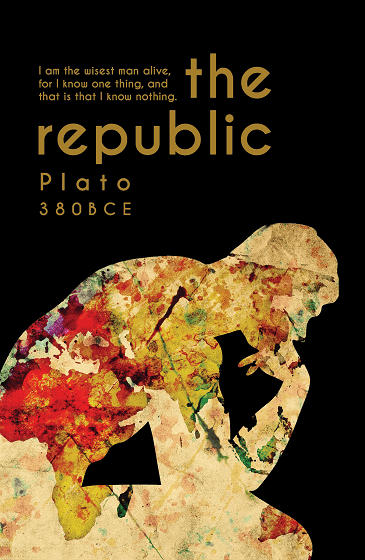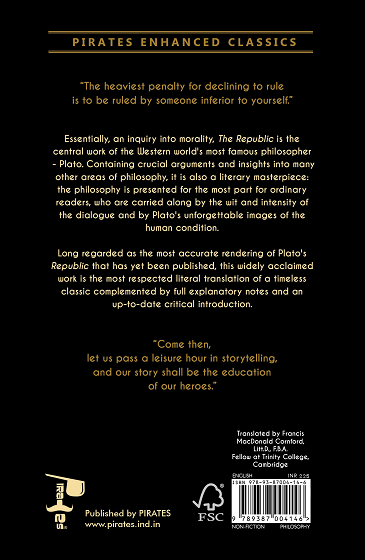is to be ruled by someone inferior to yourself.”
Essentially, an inquiry into morality, The Republic is the central work of the Western world's most famous philosopher - Plato. Containing crucial arguments and insights into many other areas of philosophy, it is also a literary masterpiece: the philosophy is presented for the most part for ordinary readers, who are carried along by the wit and intensity of the dialogue and by Plato's unforgettable images of the human condition.
Long regarded as the most accurate rendering of Plato's Republic that has yet been published, this widely acclaimed work is the most respected literal translation of a timeless classic complemented by full explanatory notes and an up-to-date critical introduction.
“Come then, let us pass a leisure hour in storytelling, and our story shall be the education of our heroes.”

Plato (380 BCE) was an Athenian philosopher during the Classical period in Ancient Greece, founder of the Platonist school of thought and the Academy, the first institution of higher learning in the Western world.
He is widely considered the pivotal figure in the history of Ancient Greek and Western philosophy, along with his teacher, Socrates, and his most famous student, Aristotle. Plato has also often been cited as one of the founders of Western religion and spirituality. The so-called neoplatonism of philosophers such as Plotinus and Porphyry greatly influenced Christianity through Church Fathers such as Augustine. Alfred North Whitehead once noted: "the safest general characterization of the European philosophical tradition is that it consists of a series of footnotes to Plato."
Plato was an innovator of the written dialogue and dialectic forms in philosophy. Plato is also considered the founder of Western political philosophy. His most famous contribution is the theory of Forms known by pure reason, in which Plato presents a solution to the problem of universals known as Platonism (also ambiguously called either Platonic realism or Platonic idealism). He is also the namesake of Platonic love and the Platonic solids.
His own most decisive philosophical influences are usually thought to have been along with Socrates, the pre-Socratics Pythagoras, Heraclitus and Parmenides, although few of his predecessors' works remain extant and much of what we know about these figures today derives from Plato himself. Unlike the work of nearly all of his contemporaries, Plato's entire body of work is believed to have survived intact for over 2,400 years. Although their popularity has fluctuated over the years, Plato's works have never been without readers since the time they were written. Plato is often ranked among the most influential people in human history.


